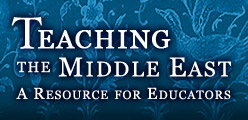Modernity and the Road to Independence
(1900 CE–present)
The shock of the Western colonial conquest shattered the classical forms and the societies that produced them. From the disruption of classical traditions, the encounter with Western writers, and the struggle to overcome the legacy of colonial rule emerged new forms of literary expression.
Poets led by the Iraqi al-Sayyab (d. 1964) and the Iranian Nima Yushij (d. 1960) pioneered thematically and metrically more flexible poetics. The Egyptian writer and Nobel laureate Naguib Mahfuz (d. 2006) brought a new social realism to the novel and short story. Yusuf Idris (d. 1991) and Tayyeb Saleh (1929–) transformed fiction writing by composing dialogues in the local dialects (Cairene and northern Sudanese, respectively) rather than the more formal Arabic known as “modern standard” which is not spoken in the home. Gamal el-Ghitani (1945–) went further by constructing entire novels in Cairene Arabic and opening them onto the style known as magic realism. Writers like the Iranian poet Forugh Farokhzad (d. 1967) broke through traditional barriers by introducing new social frankness in the portrayal of sexuality and gender relations. Many writers, like Turkish novelist and Nobel laureate Orhan Pamuk (1952-), explore topics of identity between Islam and the West.

 Michael Sells
Michael Sells
John Henry Barrows Professor of Islamic History and Literature, Divinity School, The University of Chicago
Guiding Questions
1. When was the Age of Voice, and what two major areas of concern dominated the Age of Voice?
2. How did literary traditions reflect tension between different empires in the Middle East from the sixteenth to nineteenth centuries CE?
3. What kind of impact has conflict between Middle Eastern and other cultures had on Middle Eastern literary movements, both in the early part and final centuries of the second millennium CE?


 Print Page
Print Page
